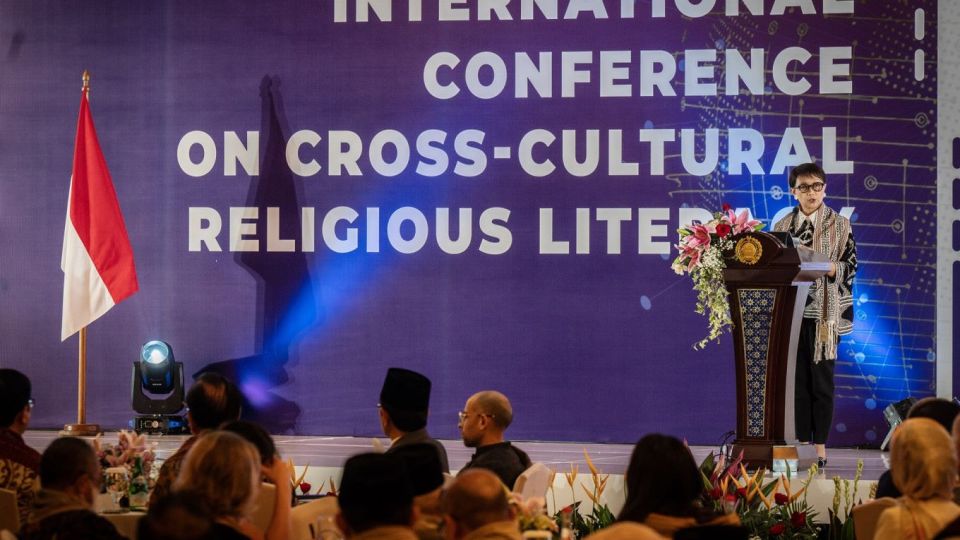July 12, 2024
JAKARTA – The ongoing Israel-Hamas war in Gaza was not a religious conflict, Foreign Minister Retno LP Marsudi told the International Conference on Cross-Cultural Religious Literacy on Wednesday in Jakarta, while highlighting that different faiths could be an asset to problem-solving in international relations when approached with tolerance and unity.
The two-day conference organized by the Leimena Institute gathered dozens of academics, activists and diplomats from around the world to discuss the role of multi-faith collaboration in upholding human rights, addressing geopolitical challenges and advancing sustainable development.
In her opening remarks, Retno lamented the “urgent and elusive” quest for global peace, referring specifically to the humanitarian crises in Afghanistan and Palestine as casting doubt on “the existence of solidarity and humanity”.
She noted that some widespread narratives pointing to religious differences as the root cause of the decades-long dispute between Palestine and Israel, which had only worsened after Gaza’s militant group Hamas launched an attack in southern Israel on Oct. 7 last year.
Contrary to such narratives, Retno emphasized that the conflict was far more complicated than religious differences.
“[The conflict is] not inherently religious, but religious elements are often present and intensifying tensions,” the minister said. “Therefore, understanding diverse faiths is crucial, an endeavor we must always nurture.”
She added that diverse faiths should be seen as an asset in peace advocacy: “When parties from various backgrounds participate in constructive dialogue, our solutions sharpen.”
The foreign minister also underlined that Indonesia had an acute understanding of how cross-religious and cross-cultural cooperation was crucial to achieving integration, drawing on its experience as a member of ASEAN, which grouped 10 nations of widely different political systems and cultures.
“Interfaith dialogue is an important part of Indonesian diplomacy,” Retno said. “We must continue to uphold this principle as we navigate the complexities of global affairs.”
Living conditions in the besieged Palestinian exclave have deteriorated after more than nine months of the Israeli military operation in retaliation for the Hamas attack. The latest United Nations report estimated that half a million Gazans faced “catastrophic” hunger levels.
Meanwhile, the death toll from the conflict has reached over 38,000, according to the Hamas-run health ministry in the Gaza Strip.
Indonesia, a fervent supporter of the Palestinian cause, has intensified diplomatic efforts over the past year to promote a permanent ceasefire and humanitarian aid flow to Gaza at various international forums. These efforts have included collaborating with the Organisation of Islamic Cooperation (OIC) to advance its diplomacy, especially to European countries.


